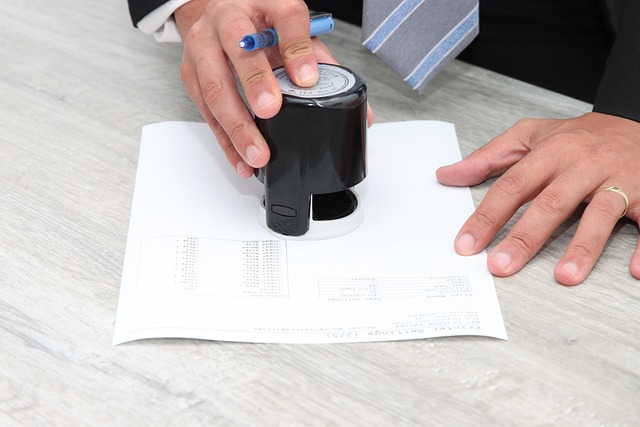How to Get the Best Exchange Rates While Traveling

Traveling abroad is an exciting adventure, but one of the challenges many travelers face is managing their money wisely. Currency exchange rates can significantly impact your travel budget, and getting the best rates can save you a substantial amount of money. In this guide, we’ll explore practical tips and strategies to help you secure the best exchange rates while traveling, ensuring that your hard-earned money goes further.
1. Understand Exchange Rates and Fees
Before diving into strategies, it’s essential to understand how exchange rates work and the hidden costs associated with currency conversion.
What Are Exchange Rates?
Exchange rates determine how much one currency is worth in terms of another. For example, if the exchange rate is 1 USD = 0.90 EUR, it means you’ll get 0.90 euros for every dollar you exchange.
Hidden Costs to Watch Out For
- Commission Fees: Some currency exchange services charge a commission on top of the exchange rate.
- Service Fees: Banks and ATMs may charge additional fees for international transactions.
- Markup Rates: Many exchange services offer less favorable rates than the interbank rate (the rate banks use to trade currencies).
Understanding these factors will help you make informed decisions and avoid unnecessary expenses.
2. Use Credit or Debit Cards Wisely
Credit and debit cards are often the most convenient and cost-effective way to access foreign currency. However, not all cards are created equal.
Choose Cards with No Foreign Transaction Fees
Many credit and debit cards charge foreign transaction fees, typically around 1-3% of the purchase amount. To avoid these fees, opt for cards specifically designed for international use. Examples include:
- Capital One Venture Card (No foreign transaction fees)
- Charles Schwab High Yield Investor Checking Account (Reimburses ATM fees worldwide)
Notify Your Bank Before Traveling
Inform your bank about your travel plans to prevent your card from being flagged for suspicious activity. This ensures uninterrupted access to your funds while abroad.
Use Dynamic Currency Conversion (DCC) Carefully
When using your card abroad, merchants may offer to convert the transaction into your home currency—a process known as Dynamic Currency Conversion (DCC). While it might seem convenient, DCC often comes with unfavorable exchange rates and additional fees. Always choose to pay in the local currency instead.
3. Withdraw Cash from ATMs Strategically
While cash is still king in many parts of the world, withdrawing it smartly is key to avoiding excessive fees.
Find ATMs Affiliated with Major Banks
ATMs operated by reputable banks usually offer better exchange rates and lower fees compared to those in airports, hotels, or tourist areas.
Withdraw Larger Amounts Less Frequently
Frequent small withdrawals can lead to higher cumulative fees. Instead, withdraw larger amounts to minimize the number of transactions.
Check Your Bank’s Global ATM Network
Some banks have partnerships with international ATM networks, allowing you to withdraw cash without fees. For example:
- Bank of America has a partnership with the Global ATM Alliance, which includes banks like Barclays (UK) and Deutsche Bank (Germany).
- HSBC customers can use HSBC ATMs worldwide without incurring fees.
4. Avoid Airport and Hotel Currency Exchanges
Currency exchange booths at airports and hotels are notorious for offering poor exchange rates and high fees. These services cater to travelers in a pinch, but they rarely provide value for your money. If possible, avoid exchanging currency at these locations.
5. Use Currency Exchange Apps and Online Tools
Technology has made it easier than ever to find the best exchange rates. Several apps and websites can help you compare rates and locate the best places to exchange currency.
Popular Currency Exchange Apps
- XE Currency: Provides real-time exchange rates and a currency converter.
- Revolut: Offers multi-currency accounts and competitive exchange rates.
- Wise (formerly TransferWise): Allows you to hold and exchange multiple currencies at the real exchange rate.
Track Exchange Rates
Keep an eye on exchange rate trends using apps or financial news websites. If your home currency strengthens against the local currency, it might be a good time to exchange more money.
6. Consider Prepaid Travel Cards
Prepaid travel cards are an excellent alternative to carrying large amounts of cash or relying solely on credit/debit cards. These cards allow you to load multiple currencies and lock in favorable exchange rates before your trip.
Benefits of Prepaid Travel Cards
- Security: If lost or stolen, prepaid cards can be replaced without losing your funds.
- Budget Control: You can only spend what’s loaded onto the card, helping you stick to your budget.
- No Debt Risk: Unlike credit cards, prepaid cards don’t involve borrowing money.
Popular Prepaid Travel Cards
- Revolut Travel Card
- Wise Multi-Currency Card
- Travelex Money Card
7. Haggle at Local Currency Exchange Booths
In some countries, local currency exchange booths may be willing to negotiate rates, especially if you’re exchanging a large amount. Don’t hesitate to ask for a better rate or shop around for the most competitive offers.
8. Carry Multiple Payment Methods
Relying on a single payment method can leave you vulnerable if something goes wrong. Always carry a mix of cash, credit/debit cards, and a backup option like a prepaid travel card. This ensures you’re prepared for any situation, whether it’s a card malfunction or an unexpected need for cash.
9. Be Cautious with Peer-to-Peer Currency Exchange
Peer-to-peer (P2P) platforms like LocalBitcoins or Paxful allow individuals to exchange currencies directly. While these platforms can sometimes offer better rates, they come with risks, including scams and lack of regulation. Only use trusted P2P services if you’re experienced and confident in navigating them.
10. Plan Ahead and Research
The key to getting the best exchange rates is preparation. Before your trip:
- Research the local currency and its stability.
- Compare exchange rates offered by different banks, ATMs, and exchange services.
- Set a budget to avoid overspending on unnecessary currency exchanges.




